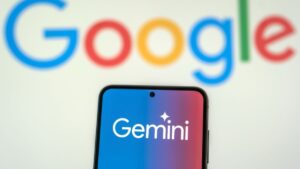Regulatory Aspects of OpenAI, State Legislation, and Google Gemini

In the latest developments within the artificial intelligence (AI) sector, prominent fundraising efforts have taken center stage, alongside a shift in regulatory strategies at the state level aimed at fostering growth rather than solely focusing on risk. Financial service companies, however, remain cautious about adopting agentic AI technology as Google reveals its latest model, Gemini 2.5. Here’s an overview of this week’s significant events in AI.
OpenAI Secures Unprecedented $40 Billion in Funding
OpenAI is reportedly nearing the completion of a groundbreaking funding round totaling $40 billion, as reported by Bloomberg News.
This round is led by Japanese investment powerhouse SoftBank, marking the largest funding effort on record, according to Pitchbook data. If finalized, this funding would value OpenAI at $300 billion, effectively doubling its previous valuation from October 2023.
OpenAI reported revenues of $3.7 billion for 2024 and projects revenues of $12.7 billion for 2025 and $29.4 billion for 2026. However, it anticipates not being cash-flow positive until 2029 due to significant expenditures on technology and talent. The company forecasts revenues exceeding $125 billion by 2029.
SoftBank plans to invest $7.5 billion initially, supported by an additional $2.5 billion from a group of investors. A subsequent $30 billion tranche will come later, with $22.5 billion from SoftBank and $7.5 billion from the syndicate.
Other potential participants in this funding round include Magnetar Capital, Coatue Management, Founders Fund, and Altimeter Capital Management.
SoftBank Plans Massive $1 Trillion Investment in AI Robot Factories
In another exciting development, SoftBank is set to invest $1 trillion in creating AI-powered robotic factories across the United States.
These factories aim to alleviate labor shortages affecting American manufacturers, as reported by Nikkei Asia. The project entails establishing multiple industrial parks nationwide and represents a significant jump from SoftBank’s earlier $500 billion commitment to build AI data centers. This initiative is named Stargate.
Financial Services Cautious About Agentic AI
Despite the hype surrounding AI technologies, financial services firms are still in the initial stages of implementing generative and agentic AI. This insight emerged from a recent SEC roundtable discussion, highlighted by industry executives and academics.
According to Hardeep Walia, managing director at Charles Schwab, many financial service firms are integrating technology at a significantly slower pace than tech companies that develop these innovations.
Sarah Hammer from the Wharton School noted that while generative AI offers valuable support in less efficient areas like clearing and settlement, companies are still grappling with assessing its return on investment due to the high costs associated with this technology.
Shift in AI Regulation Towards Pro-Growth Policies
Regulations surrounding artificial intelligence in various states are increasingly adopting a pro-innovation approach rather than focusing solely on risk management, according to the R Street Institute.
This year alone, state legislators have put forth more than 900 AI-related bills, setting a new record. Adam Thierer, a senior fellow at R Street, pointed out that states like Virginia and Texas are moving away from the strict regulations proposed in the EU AI Act.
Recently, Virginia Governor Glenn Youngkin vetoed HB 2094—the “High-Risk Artificial Intelligence Developer and Deployer Act”—stating it could hinder job creation, business investment, and innovation. Meanwhile, Texas has revised the “Texas Responsible AI Governance Act” to implement a more flexible regulatory approach.
Google Launches Its Most Advanced AI Model, Gemini 2.5
Google has just launched Gemini 2.5, its most sophisticated generative AI model to date. This new model sets a new standard in the competitive AI landscape.
Gemini 2.5 significantly outperforms its main competitors, showcasing superior capabilities in industry benchmarks. Viewed as the most intelligent offering in Google’s generative AI lineup, it is designed to enhance enterprise applications through the Google Cloud platform.
Anders Indset, founder of investment firm Njordis, described Gemini 2.5 as “a masterpiece of reasoning and computational power,” noting Google’s aggressive positioning in the ongoing AI race.
Read more: More details on the introduction of Gemini 2.5 and its implications for the AI landscape.





